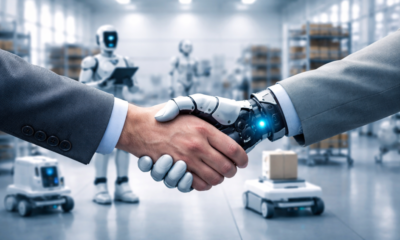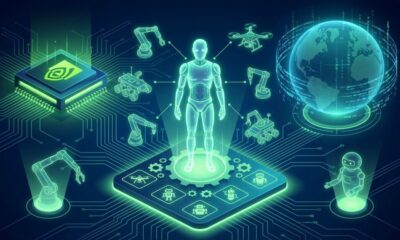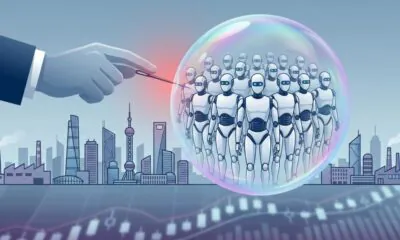Ethics
Study Finds Workplace Robots Could Cause Job Insecurity

A new study carried out by the American Psychological Association has found that working alongside robots could contribute to job burnout and insecurity, as well as workplace incivility. At the same time, it also found that self-affirmation techniques could alleviate fears of being replaced by machines.
The study was published in the Journal of Applied Psychology.
Fears of Being Replaced
The team of researchers found that workers in the United States and parts of Asia suffer the most from job insecurity due to robots, and this is even applicable to industries where robots are not yet being used. According to lead researcher Kai Chi Yam, PhD, these fears might not be justified.
Yam is an associate professor of management at the National University of Singapore.
“Some economists theorized that robots are more likely to take over blue-collar jobs faster than white-collar jobs,” Yam said. “However, it doesn’t look like robots are taking over that many jobs yet, at least not in the United States, so a lot of these fears are rather subjective.”
The team’s experiments involved data from participants in the U.S., Singapore, India, and Taiwan.
The researchers found that working with industrial robots was linked to greater reports of burnout and workplace incivility in an experiment involving 118 engineers employed by an auto manufacturing company in India.
Another online experiment involving 400 participants found that self-affirmation exercises help lessen workplace robot fears. Self-affirmation exercises can be defined as exercises where people are encouraged to think positively about themselves and their human characteristics. Some of these characteristics included friends and family, a sense of humor, and athletics.
“Most people are overestimating the capabilities of robots and underestimating their own capabilities,” Yam continued.
Nothing New or Uncommon
The fear of a robot takeover of the workplace is nothing new or uncommon. The team analyzed data about the prevalence of robots in 185 U.S. metropolitan areas and the overall use of job recruiting sites in the same areas. They found that in the areas with the most prevalent rates of robots, there were also the highest rates of job recruiting site searches despite unemployment rates not being any higher in those areas. The team also theorized that workers in these areas suffer from more job insecurity due to the robots, but there could be other factors at play, such as seeking new careers or being unhappy with current work.
One more experiment involved 343 parents of students at the National University of Singapore. These parents were randomly assigned to three groups. One read an article about the use of robots in businesses, another read a general article about robots, and the last read an unrelated article. They were then surveyed about their job insecurity concerns, and the first group reported significantly higher levels of insecurity when compared to the other two.
According to Yam, media coverage could be responsible for making concerns worse among the general public.
“Media reports on new technologies like robots and algorithms tend to be apocalyptic in nature, so people may develop an irrational fear about them,” he said.












